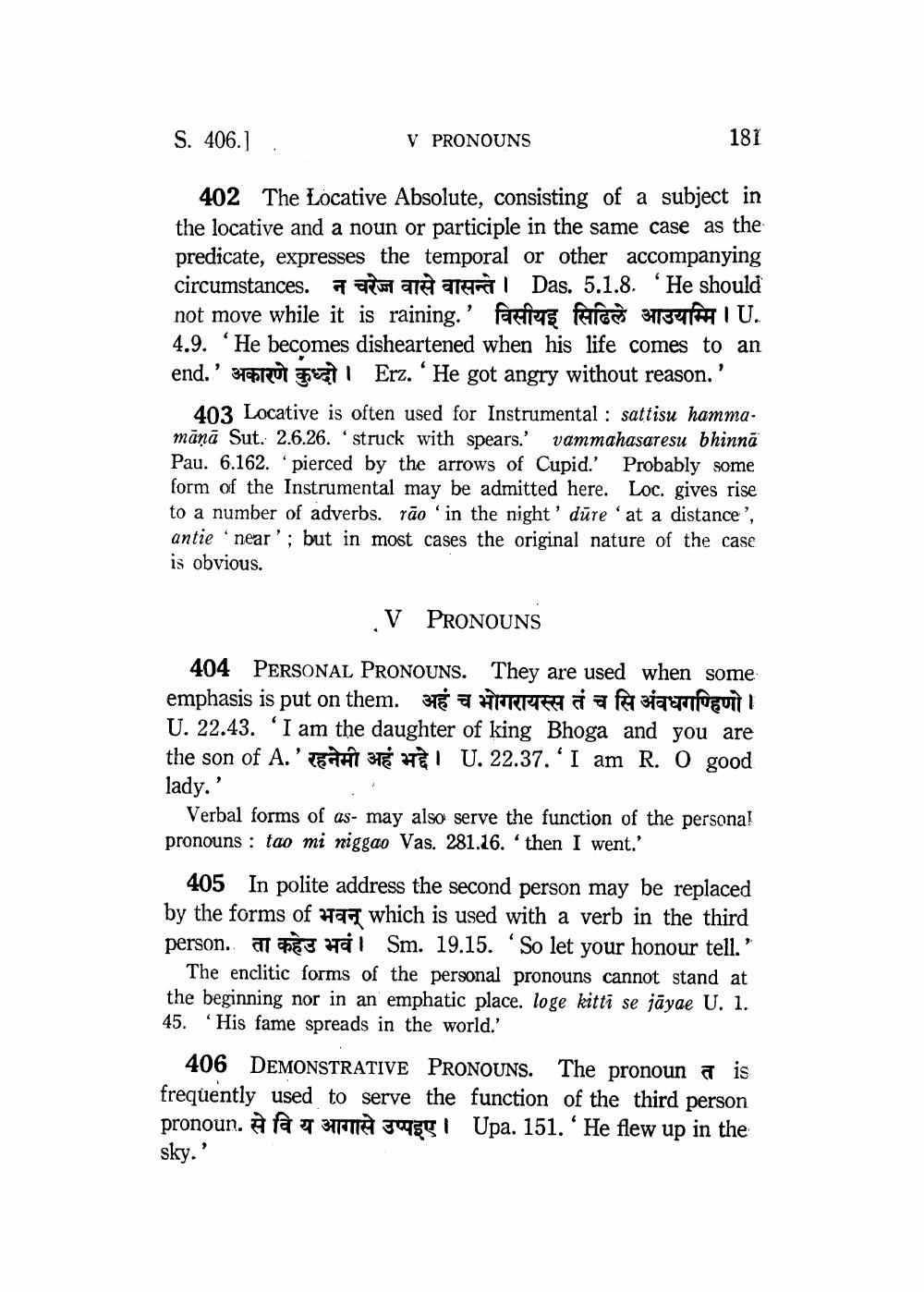________________
S. 406.).
V PRONOUNS
181
402 The Locative Absolute, consisting of a subject in the locative and a noun or participle in the same case as the predicate, expresses the temporal or other accompanying circumstances. a RT atema I Das. 5.1.8. 'He should not move while it is raining.' farefters FAIGSS SITUATIU. 4.9. 'He becomes disheartened when his life comes to an end.' 3 Targu Frei Erz. 'He got angry without reason.'
403 Locative is often used for Instrumental : sattisu hammamānā Sut. 2.6.26. 'struck with spears.' vammahasaresu bhinna Pau. 6.162. pierced by the arrows of Cupid.' Probably some form of the Instrumental may be admitted here. Loc. gives rise to a number of adverbs. rão ' in the night' dūre 'at a distance', antie 'near'; but in most cases the original nature of the case is obvious.
.V PRONOUNS
404 PERSONAL PRONOUNS. They are used when some emphasis is put on them. É a rere da le samedi U. 22.43. 'I am the daughter of king Bhoga and you are the son of A.' EN BÉTÈT U. 22.37. 'I am R. O good lady.'
Verbal forms of as- may also serve the function of the personal pronouns : tao mi niggao Vas. 281.16. then I went.'
405 In polite address the second person may be replaced by the forms of part which is used with a verb in the third person. at 7 Sm. 19.15. “So let your honour tell."
The enclitic forms of the personal pronouns cannot stand at the beginning nor in an emphatic place. loge kitti se jāyae U. 1. 45. "His fame spreads in the world.
406 DEMONSTRATIVE PRONOUNS. The pronoun a is frequently used to serve the function of the third person pronoun. à sa T SI 30465 i Upa. 151. ' He flew up in the
sky.'




